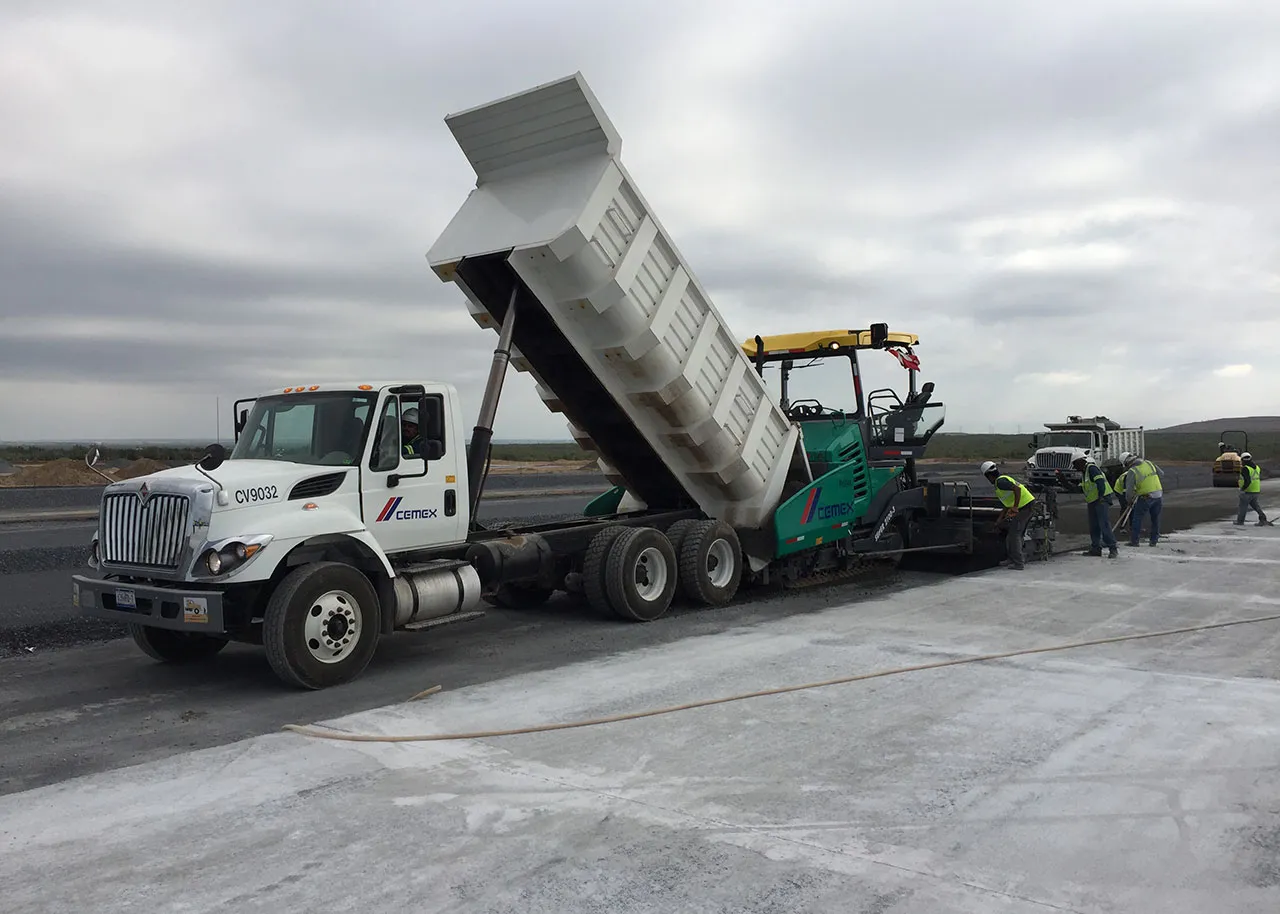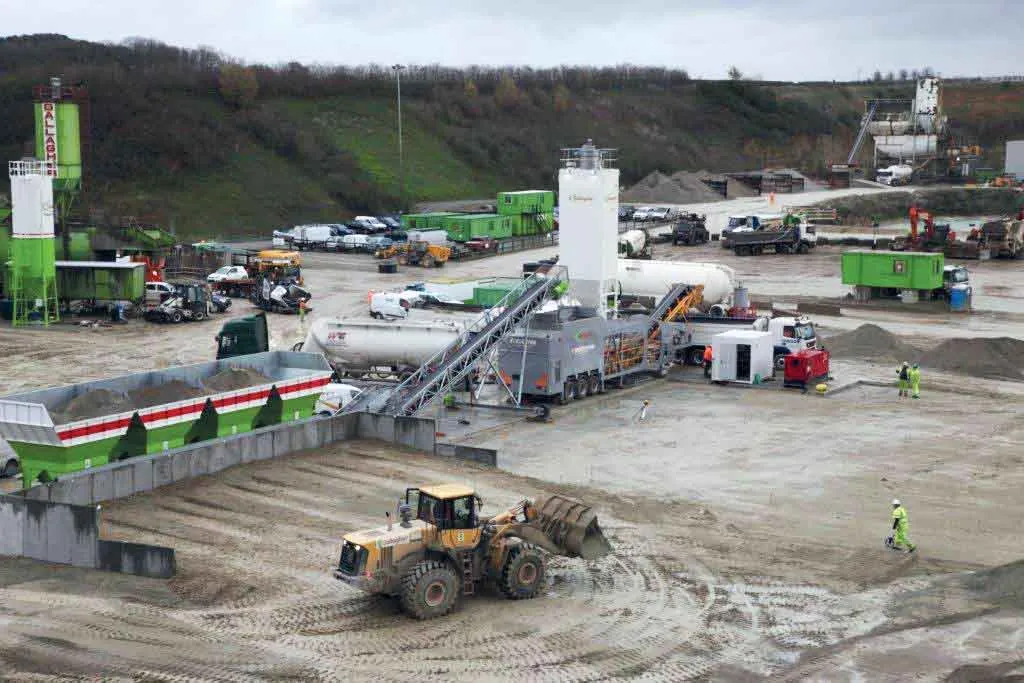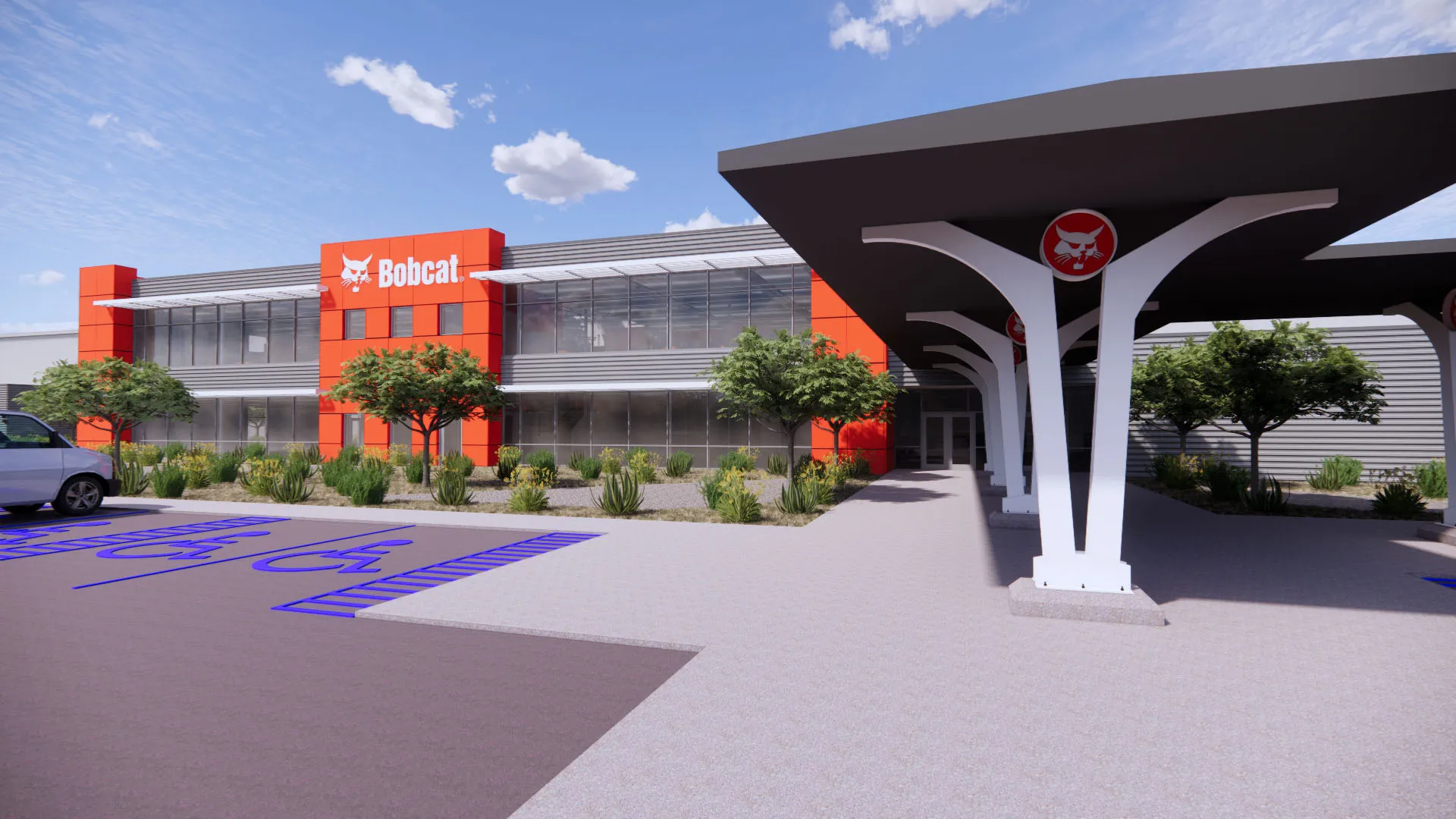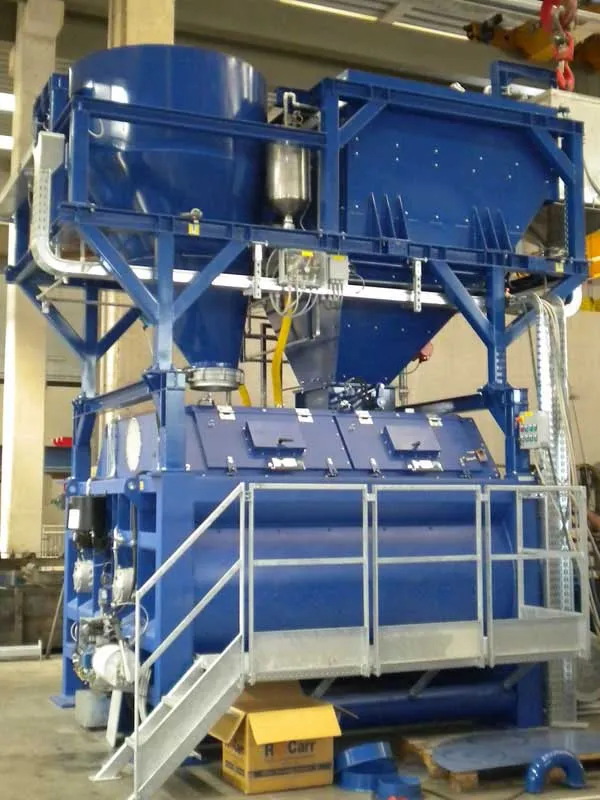
The order has been for 21,500m3 of roller compacted concrete (RCC) to pave all of the roads for the new terminal of ALA Transportes, a division of Grupo Transportes de Monterrey (GTM) - the largest trucking company in Mexico. The trucking firm needed a tough and durable concrete grade to be able to cope with the loads exerted by the movements of around 400 heavily laden trailers/day at the facility.
Occupying a site covering 15ha at Nuevo Laredo in northern Mexico, the project required a solution able to cope with the 400 trailers/day, accounting for total loads of 14,000tonnes. The client was also keen to benefit from long-term savings on site repairs and maintenance during the lifespan of the pavement.
CEMEX decided that an RCC solution would best meet the challenge. This CEMEX product enables the paving of roads subject to heavy traffic such as industrial parks, working yards, and slow traffic lanes.
The project included the use of hydraulic concrete exclusively for the main road inside the terminal. However, to maximise the benefit of the product’s features, RCC was placed in all of the roads, providing a longer lifespan, faster opening of the road to vehicles, and reduced maintenance costs.
For the first stage of this project, CEMEX delivered a comprehensive turnkey offering of 65,000m2 of RCC placed through a high-intensity paver, together with 50,000tonnes of aggregates for the coating of the hydraulic base.
The second phase of this project is planned to be developed over the coming months, and CEMEX expects to supply an additional 40,000m2 or so of RCC and around 30,000tonnes of aggregates.Additionally, ALA Transportes announced the construction of a work yard for the new terminal in Queretaro, Mexico, which will comprise 15ha of land.









